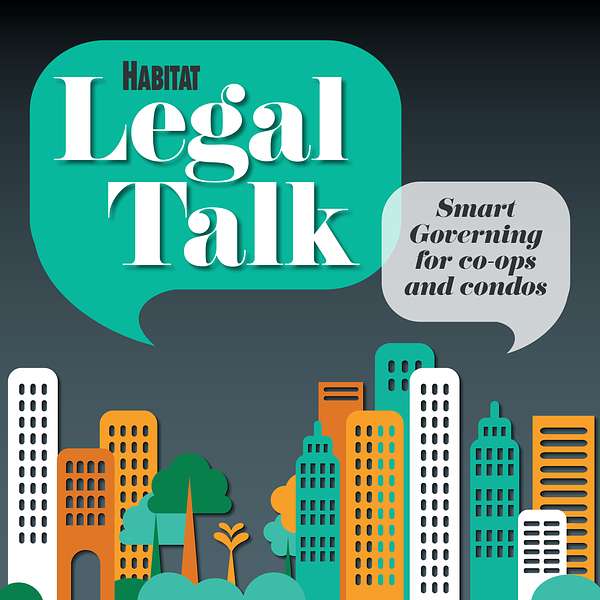
Legal Talk for Co-ops and Condos
Co-op and condo board directors face a myriad of challenges they are not equipped to solve, and taking action can be a fraught experience. In this series, Habitat Magazine editors interview New York's leading co-op/condo attorneys for guidance on these challenges. Habitat, a New York City publication founded in 1982, is edited for co-op and condo board directors, property managers, and other professionals.
Legal Talk for Co-ops and Condos
When Are Board Decisions Protected And Why Should You Care
•
Legal Talk by Habitat Magazine
Use Left/Right to seek, Home/End to jump to start or end. Hold shift to jump forward or backward.
Peter Massa, Partner, Armstrong Teasdale, is interviewed by Habitat Magazine's Bill Morris.
- A legal landmark. The business judgment rule has been around in corporate law for a long time. The theory is that board decisions will not be second-guessed by the courts — provided they’re made in furtherance of the corporation's legitimate interest and in accordance with the recommendation of the corporation’s professionals and the governing documents.
- It’s not failsafe. The caveat here is you generally don't have business judgment rule protection if you're acting in bad faith, outside of the board's authority and against what your governing documents say, or if you’re not following the advice of your professionals.
- Case in point. I represented a condominium that had fireplaces in the apartments. When it was discovered that the chimneys weren't properly lined and fireproofed, engineers told the board it had to get this done because it’s a life-safety issue. The board was facing potential litigation on two fronts — one group didn’t want to spend the money because the fireplaces had never been a problem, and another group threatened to sue if the board did this because it was going to be a big assessment.
- What should the board do. The board should rely on the advice of the engineers. If someone sued, the board’s decision would be upheld because of the business judgment rule. While that case didn't go to litigation, that's how it would be applied. If you can show in court that you were trying to do what was best for the corporation or condominium — even if it was wrong — courts generally will grant you broad leeway.
The business of running a building is demanding work that requires making endless decisions — some that can quickly lead your board into a quagmire of legal difficulties. Legal Talk interviews New York's leading co-op/condo attorneys to find solutions, and get some guidance, on these challenges. For more co-op and condo insights, sign up to receive Habitat's free newsletters or become a Habitat subscriber today!